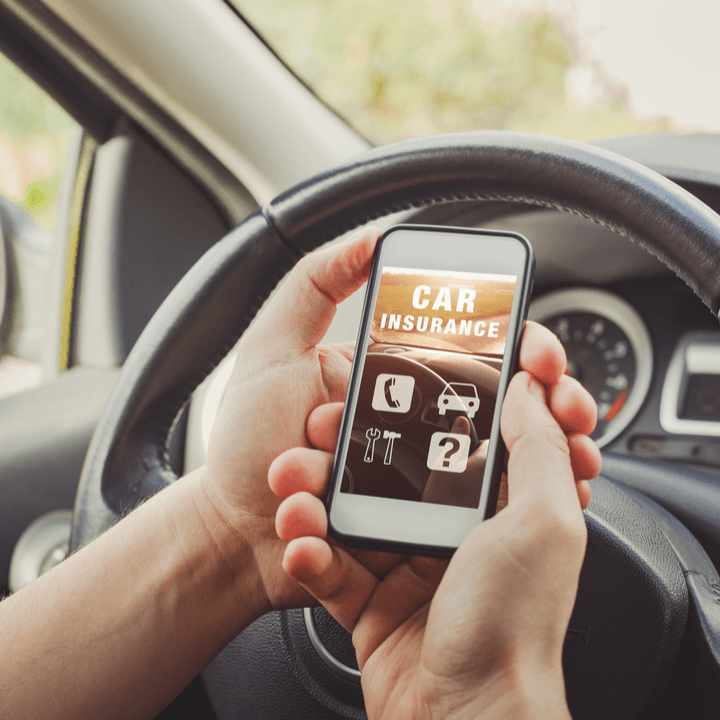
There are many different types of car insurance coverages that make up your car insurance policy. Each driver has unique needs based on where they live, their driving history, their age, and the car they drive. Understanding the difference between liability vs. full coverage and what they cover is key when trying to choose coverage to fit your needs. Below you can find out what liability and full coverage are and see how they differ.
What is liability coverage?
Liability coverage is the part of your car insurance coverage that is required in most states for all car owners. In short, it covers the damage you cause to other people and their property in an accident, but it's separated into two different parts: bodily injury liability and property damage liability. However, remember that some states require more than just liability car insurance.
Bodily injury liability (BI)
Bodily injury liability covers expenses for injuries or death to other drivers, passengers, or pedestrians in an accident the policyholder was found at fault for. It covers medical expenses, loss of income, and funeral expenses of the accident victims. Additionally, bodily injury liability covers the policyholder's legal fees in the event they're sued over the accident. This coverage also helps pay for medical bills in the event of an accident.
Property damage liability (PD)
Property damage liability covers expenses for damage to property that belongs to another party/parties involved in an accident the policyholder was found at fault for. Property damaged in an accident is usually another car, but it can be many different types of objects, such as a fence or house. Additionally, property damage liability covers the legal fees of the policyholder if they're sued over damages from the accident.
How is liability displayed on a policy?
In most cases, car insurance companies group bodily injury and property damage liability together when your limits are displayed on your policy. It'll be grouped with three dollar amounts representing the maximum amount your insurance company will pay for that type of damage.
Typically, the first amount displayed is your bodily injury liability limit per person, the second is your bodily injury liability limit per accident and the third is your property damage limit per accident. For example, if your liability is shown as $100,000/$300,000/$50,000 or 100/300/50, you have limits of up to $100,000 for bodily injury per person, $300,000 for bodily injury per accident if more than one person is injured, and $50,000 for property damage per accident.
The minimum limits required for liability insurance vary by state, but it’s suggested that drivers purchase higher limits than their state minimums as the minimums usually aren’t enough to cover all accident-related costs in the event of a costly accident. To see what your state requires, filter by your state on our car insurance rankings page.
What is full coverage insurance?
Unfortunately, full coverage insurance doesn't actually exist. When people say they have “full coverage” for their car insurance, they may mean they have a combination of coverages, including the state-required liability insurance discussed above as well as collision and comprehensive coverages. Collision and comprehensive coverages are not required by law but may be required by your lender if you lease or finance your car. Even so, the term “full coverage” can be deceiving because it doesn't actually cover everything.
Collision coverage and comprehensive coverage are both optional ways for you to protect your car. Both cover damage in different situations.
Collision insurance covers damage to your car from an accident involving another car or object while the car is being driven. An example is damage to your car after you collide with another car in an accident you're at fault for. Collision insurance doesn't cover damage to the other person's car or property, medical expenses, or damage to your car not caused in a collision. This type of insurance will also help protect you in instances like running into a guard rail or light pole.
Comprehensive insurance is the coverage that protects your car from damage that wasn't caused by a collision. This can include theft, vandalism, fire, a fallen tree or another object, a natural disaster, or severe weather such as hail, animal damage, and windshield and glass damage.
What's the difference between liability and full coverage?
Liability is a type of car insurance coverage while full coverage is a phrase some people use when describing their various car insurance coverages, typically including multiple optional coverages like collision and comprehensive. Liability is one of the car insurance coverage types included on a car insurance policy when people say they have full coverage.
Liability is required by states that require car insurance, but the other parts of full coverage comprehensive and collision are not required by law but may be required by your lender if you lease or finance your car. Additionally, collision and comprehensive coverages have deductibles the policyholder must pay before the car insurance company pays the rest. Liability coverage doesn't have a deductible.
Are there other car insurance coverage options?
In addition to liability, comprehensive, and collision coverages, there are a number of other coverage required in some states or optional add-ons. Two other basic car insurance coverages that are required in some states are no-fault insurance and uninsured/underinsured motorists protection.
- No-fault insurance: If you live in a no-fault state, you’ll need to have no-fault insurance, also known as personal injury protection (PIP) coverage, on your car insurance policy. PIP is required in some states, optional in others, and not offered in some states. It covers the policyholder's medical expenses after an accident regardless of who was found at fault.
- Uninsured/underinsured motorists coverage: The other basic coverage that’s required in some states is uninsured/underinsured motorists coverage. If you're injured in an accident and the person at fault either doesn't have insurance or doesn't have enough coverage to cover your expenses resulting from an accident, this coverage option will protect you for that. This coverage also offers you coverage in the event you're the victim of a hit-and-run accident.
Car insurance coverages that are optional in most states include umbrella, rental car coverage and roadside assistance.
- Umbrella insurance: Umbrella insurance is extra liability protection that's useful if you're at fault for an accident and the damages caused exceed your standard policy limits. It can help protect your assets.
- Rental car coverage: Rental car coverage will reimburse you for the cost or a fraction of the cost of a rental car for a certain number of days when your car is damaged in an accident.
- Roadside assistance: Roadside assistance provides you with on-call towing and assistance with your car for things like a breakdown, lockout, or a flat tire. See what consumers rate as the companies with the best roadside assistance.
You can read our car insurance guide for an in-depth explanation of all car insurance coverage options.
How do you choose car insurance coverage?
When choosing your car insurance, you should start by familiarizing yourself with your state's required coverages for car insurance. Be aware that you'll likely want more coverage than the state minimum limits for those coverages. Different states require different types of coverage, so familiarize yourself with your state's requirements. It's important to consider all coverages available to you and determine what you need for limits and deductible amounts. If you're unsure of what you need, talk with an insurance agent or company to ensure you're properly covered.
Although full coverage car insurance is not technically a real thing, it is important to make sure that your car is as protected as it can be, in case of an accident. Talk to a local insurance agent to see what auto insurance coverage is required in your state, and which policies would work best for you. Make sure that you are getting the best car insurance quote by using our free tool to compare quotes in your area. It's simple, just enter your zip code!
The company you choose to purchase a car insurance policy from matters, too! All companies offer different rates and have different processes for customer service and claims handling. Additionally, the companies that offer insurance in each state vary. Do your research when choosing a company by reading insurance company reviews on Clearsurance to gain insight into how customers feel about the company. See who consumers rank as the best car insurance companies in your state.
The content on this site is offered only as a public service to the web community and does not constitute solicitation or provision of legal advice. This site should not be used as a substitute for obtaining legal advice from an insurance company or an attorney licensed or authorized to practice in your jurisdiction. You should always consult a suitably qualified attorney regarding any specific legal problem or matter. The comments and opinions expressed on this site are of the individual author and may not reflect the opinions of the insurance company or any individual attorney.







